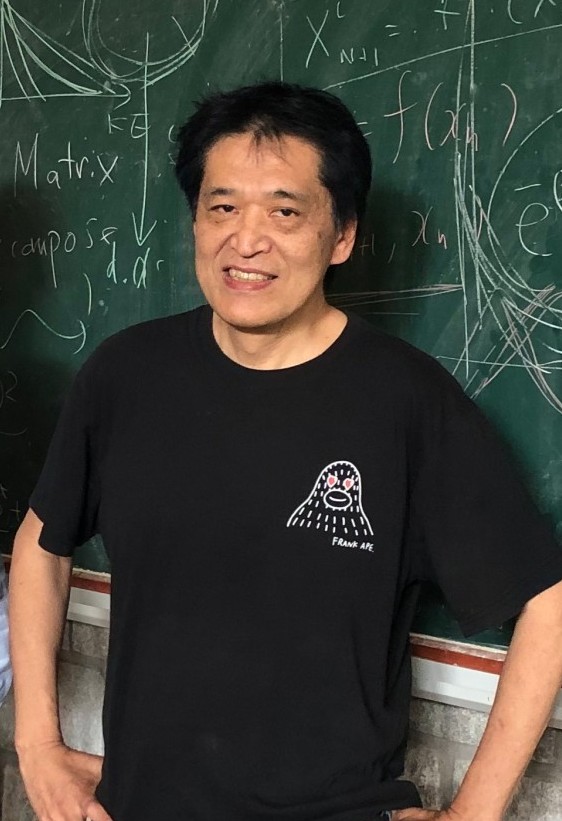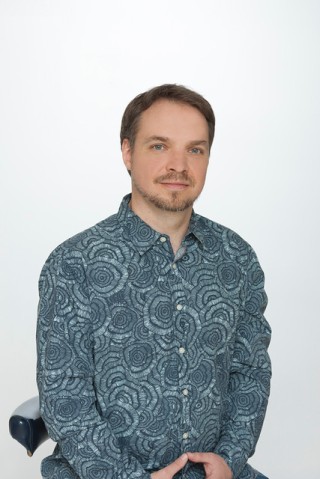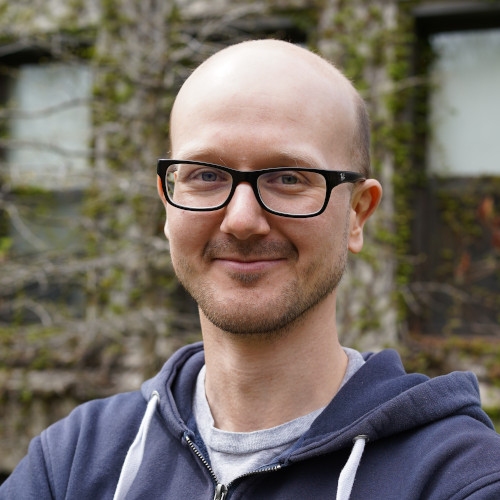Invited Speakers
January 22, 2026, 09:00 – 10:45
Organized Session: Individuality and Collectivity in Living Systems III
| Organizers |
Yasuhiro Hashimoto (University of Aizu, Japan) Akiko Kashiwagi (Hirosaki University, Japan) |
|---|---|
|
This session will explore how individuality and collectivity co-emerge across multiple levels—from microbial populations and insect societies to cultural dynamics in online networks. By comparing these distinct domains, we aim to reveal general principles of information flow and organization that link micro- and macro-scale phenomena. |
|
The following invited speaker will present in this organized session.

The University of Tokyo, Japan
Across biological systems, individuality can emerge from the collective dynamics of communities. This is the central idea explored in this session, Community First Theory (CFT).
In Tetrahymena thermophila, single-cell RNA sequencing of 5,000 genetically identical clonal organisms revealed substantial transcriptional diversity within the population. Even after accounting for cell-cycle effects, gene expression clustered into six distinct groups enriched for ribosomal, mitochondrial, cytoskeletal, and peroxisomal proteins—indicating spontaneous specialization in metabolic and structural functions within a shared environment. These findings demonstrate that genetic identity does not guarantee phenotypic uniformity when organisms are embedded in collective contexts.
Similarly, in queen-less and male-less Pristomyrmex punctatus ant colonies lacking genetic variation, individual tracking uncovered two coexisting behavioral roles: ants forming dense clusters and others circulating between them. These groups alternated between deterministic exploratory movements and probabilistic clustering dynamics, with coordinated bursts resuming periodically. This behavioral heterogeneity was observed in honeybee hives as well. Together, these biological systems show that collective organization can amplify subtle individual differences, allowing distinct functional and behavioral traits to crystallize through interaction even in genetically homogeneous populations.
Recently we conducted a robot swarm experiment using ten identical phototactic robots under structured light conditions. Despite being physically and algorithmically identical, the robots exhibited spontaneous behavioral diversification over time. Subtle asymmetries in initial positioning and environmental symmetry breaking gave rise to distinct collective modes and coordination patterns, providing a minimal physical model for emergent individuality without pre-programmed heterogeneity.
A comparable process is observed in the digital ecologies of large-scale AI societies. We conducted multi-agent simulations using Large Language Model (LLM)-based agents that were initially undifferentiated—lacking predefined personalities, memories, or behavioral traits. These agents engaged in cooperative communication within group simulations, exchanging context-based messages in natural language. Through autonomous interactions, the agents spontaneously generated hallucinations and hashtags to sustain communication, which increased the diversity of words and topics within their exchanges. As conversations progressed, each agent's emotions shifted, and distinct personalities emerged and evolved as communities formed. Despite starting from identical initialization, the individuality of each agent arose not from its internal code alone but from distributed communication and mutual adaptation within the network.
Finally, using the framework of Partial Information Decomposition (PID), we characterize the informational advantages of developing individuality in terms of synergy and redundancy. This quantitative approach provides a unified description of differentiation processes across biological organisms, robotic collectives, and LLM-based agent societies, revealing a common information-theoretic foundation for emergent individuality.
Together, these observations support the Community First Theory, which posits that individuality arises from collective organization rather than existing prior to it. Differentiation is not a fixed design feature but a dynamic property of communities interacting with the same world—whether material, ecological, or informational. From Tetrahymena and ants to robots to networks of language models, individuality blooms from collectivity itself. The community gives birth to the very differences that sustain its function. This perspective offers new insights into the origins of diversity, autonomy, and intelligence in both natural and artificial systems.
References:
- Hiroki Kojima, Akiko Kashiwagi, A & Takashi Ikegami (2024) Revealing gene expression heterogeneity in a clonal population of tetrahymena thermophila through single-cell rna sequencing. Biochemistry and biophysics reports, 38: 101720.
- Norihiro Maruyama, Shigeto Dobata, Takashi Ikegami, Behavioral Analysis of Ant Colonies: Distinguishing Between Stochastic/Deterministic Modes and Global Behavior, AROBII-ISC-SWARM 2024.
- Tomoyuki Atsushi Masumori, Norihiro Maruyama Takahide Yoshida Takashi Ikegami, From Swarm to Individual: Emergent Individuality in Light-Mediated Robot Collectives (submitted to Advanced Intelligent Systems 2025)
- Ryosuke Takata, Atsushi Masumori and Takashi Ikegami: Spontaneous Emergence of Agent Individuality Through Social Interactions in Large Language Model-Based Communities. Entropy, 26(12), 1092 (2024).
Biography:
I have been working on the field of artificial life for more than 20 years. Evolution of genetic codes, mutation rates and cooperative relationships is one the main targets of my research. For example, complexity of coupled cognitive systems have been studied using dynamical recognizers and other recurrent neural (often embodied) systems. Recently, I am interested in constructing artificial life in the real world. To fruition the concepts developed through the study of artificial life, such as "autonomy", "enaction", "sustainability", and "evolvability", I have newly started several experimental and conceptual works, using an android (called Alter3), a large scale Boids model and other bio-chemical experiments.
January 23, 2026, 09:00 – 10:45
Organized Session: TONAL 2026
| Organizers |
Georgii Karelin (OIST) Milan Rybar (OIST) Moritz Kriegleder (University of Vienna) Luna Wang (OIST) |
|---|---|
|
What if noise is not merely tolerated by life, but embraced—perhaps even essential? This workshop explores the generative and functional roles of randomness and noise in natural and artificial complex adaptive systems. Our central conjecture is that stochasticity is not just a background condition or a nuisance to overcome, but a vital and irreplaceable component of living systems—natural and artificial alike. From random mutations driving evolution to chaotic dynamics in numerical simulations, unpredictability often sits at the heart of emergent complexity. In Artificial Life (ALife), randomness appears in various forms: it may be exogenous (as procedural input), or endogenous (emerging from the system itself during its evolution). In either case, it poses a critical question: If artificial and natural life persistently co-exist with randomness, how might they benefit from it—or even thrive on it? We invite discussion on whether some noise is actively generated or amplified by living systems and whether such noise plays a meaningful, causally efficacious role in the system’s operational closure. By better understanding these dynamics, we may be able to engage with artificial living systems in richer, more meaningful ways. Website (to be updated, for now it displays information about previous TONAL 2025 workshop): https://www.oist.jp/research/research-units/ecsu/alife Email: ecsu.alife@oist.jp |
|
The following invited speakers will present in this organized session.

Okinawa Institute of Science and Technology, Japan
Cognitive sciences often appeal to intentions, reasons, motivations, and decisions to explain and predict behavior. However, such mental features are not directly observable in low-level observations, such as neural measurements.
From that, it follows that there is a conceptual tension between how agency is discussed in philosophy and psychology and what neuroscience can measure. If both aspects are important, how can they coexist? In other words, if something like agency matters and is not just an epiphenomenal "ghost in the machine", where is it in the signal? Perhaps it is not directly present as a variable at all, but only indirectly as a systematic pattern in deviations from expected activity. In the opposite case, if the eliminativistic account is correct, then cognitive science has no real object to study, except for some epiphenomenal statistical correlations and tendencies.
In this talk, a Participation Criterion will be introduced and explained: accounts of mental causation should specify what measurable difference the presence of mental efficacy would make compared with a counterfactual scenario in which mental efficacy is not present. The core hypothesis is that agency and consciousness may be observable, but only indirectly and in a model-dependent way, as context-aware departures from predicted dynamics, which will lead to an increased unpredictability in neural activity. In other words, it will be possible to predict neural dynamics from the observation of current and past moments; irruptions will be associated with moments of increased uncertainty of predictions (in a similar way to how modern weather forecasts also include uncertainty estimation). Irruption theory then treats these departures (designated as "irruptions") as structured, agency-linked variability.
Biography:
Dr. Tom Froese is a cognitive scientist with a background in artificial life and complex systems theory. His research addresses foundational questions regarding the origin and nature of the human mind by integrating philosophy of mind, computational modeling, and human subjects research.
https://www.oist.jp/research/research-units/ecsu/tom-froese

Okinawa Institute of Science and Technology, Japan
Decision-making is often studied by contrasting arbitrary choices (little consequence) with deliberate choices (reasoned and meaningful). EEG work has reported readiness potentials before arbitrary choices but not before deliberating (imporant and hard) ones, suggesting that the two kinds of decisions rely on different neural dynamics.
EEG is a direct readout of electrophysiological activity. However, it is also a noisy, low-spatial-resolution measurement, so what matters may sit in the dynamics rather than in a single amplitude peak. Here we re-analyze EEG from a donation-choice task, focusing not on mean amplitudes but on variability. We applied several entropy and complexity measures and tracked their changes after stimulus onset.
The main result is a difference in post-stimulus entropy dynamics between conditions: deliberate choices showed higher entropy/complexity than arbitrary choices.
These findings shift “neural noise” from just nuisance to potentially useful signals. So, the “noise” might matter too. From this perspective, entropy-based EEG measures could serve as proxy markers of agential involvement, highlighting the constructive role of variability in adaptive decision-making.
Biography:
Dr. Milan Rybar joined the Embodied Cognitive Science Unit at the Okinawa Institute of Science and Technology (OIST) as a Postdoctoral Researcher in July 2025. Previously, he was a Postdoctoral Researcher in the Hatsopoulos Lab at the University of Chicago (April 2023–June 2025), focusing on brain–computer interfaces, and an AI Research Scientist Intern at Meta (June–September 2022). He earned his PhD in Computer Science at the University of Essex (Brain-Computer Interfaces and Neural Engineering Laboratory), where he investigated BCI-based communication by differentiating semantic concepts from brain activity. Earlier, he completed MSc (Artificial Intelligence) and BSc (General Computer Science) degrees at Charles University in Prague. His interests include AI, computational neuroscience, artificial life, evolutionary computation, bio-inspired algorithms, and multi-agent/complex systems.
https://milanrybar.cz/
 AROB-ISBC 2026
AROB-ISBC 2026